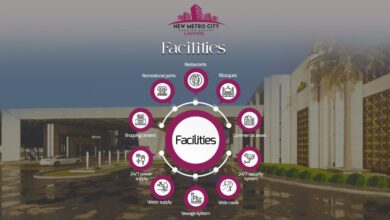Cloud accounting has revolutionized the way businesses manage their finances, offering numerous benefits and opportunities for growth and efficiency. From improved accessibility and scalability to enhanced collaboration and data security, cloud accounting has become an essential tool for businesses of all sizes.
By following online accounting services, businesses can streamline their financial operations, make informed decisions, and adapt to changing market dynamics with confidence and agility. Whether you’re a small startup or a large enterprise, cloud accounting can help you unlock new opportunities, optimize performance, and achieve your strategic objectives in an increasingly competitive business landscape. In this guide, we’ll explore how cloud accounting can help businesses streamline their financial operations, make informed decisions, and achieve their strategic objectives.
1. Accessibility and Flexibility
One of the key advantages of cloud accounting is its accessibility and flexibility. With cloud-based accounting software, businesses can access their financial data anytime, anywhere, as long as they have an internet connection. This flexibility allows business owners and accounting professionals to work remotely, collaborate with team members, and access real-time financial information from any device, including laptops, tablets, and smartphones. Whether you’re traveling, working from home, or meeting with clients, cloud accounting ensures that you have access to your financial data whenever you need it.
2. Real-Time Financial Insights
Cloud accounting provides businesses with real-time visibility into their financial performance, enabling them to make informed decisions based on up-to-date information. With features such as real-time reporting, dashboard analytics, and customizable financial dashboards, businesses can track key performance indicators, monitor cash flow, and identify trends and patterns that impact their bottom line. By having access to timely and accurate financial insights, businesses can proactively manage their finances, identify opportunities for growth, and address potential challenges before they escalate.
3. Cost Savings
Cloud accounting offers significant cost savings for businesses compared to traditional accounting methods. With cloud-based accounting software, businesses eliminate the need for expensive hardware, software licenses, and IT infrastructure investments. Instead, businesses pay a subscription fee based on their usage, allowing them to scale their accounting software as their business grows. Additionally, cloud accounting reduces the need for manual data entry and paper-based processes, minimizing administrative costs and improving operational efficiency. By leveraging cloud accounting, businesses can allocate their financial resources more effectively and reinvest savings into strategic initiatives that drive growth and innovation.
4. Enhanced Collaboration
Collaboration is essential for effective financial management, especially in businesses with multiple stakeholders and team members. Cloud accounting facilitates collaboration by allowing multiple users to access and work on financial data simultaneously. Team members can collaborate on financial reports, reconcile accounts, and track expenses in real-time, regardless of their location. Cloud accounting software also enables seamless integration with other business applications, such as customer relationship management (CRM) systems and project management tools, enhancing collaboration across departments and improving overall efficiency.
5. Scalability and Growth
Scalability is a critical consideration for businesses as they grow and expand their operations. Cloud accounting offers scalable solutions that can adapt to the changing needs of businesses, regardless of size or industry. Whether you’re a small startup or a large enterprise, cloud accounting software can accommodate your growing business requirements without the need for costly upgrades or additional infrastructure. As your business expands, you can easily add new users, access advanced features, and integrate third-party apps to support your evolving financial management needs. Cloud accounting empowers businesses to scale their operations seamlessly and focus on driving long-term growth and success.
6. Data Security and Compliance
Data security is paramount for businesses, especially when it comes to sensitive financial information. Cloud accounting providers adhere to stringent security standards and protocols to protect customer data from unauthorized access, breaches, and cyber threats. Cloud accounting software employs encryption technologies, multi-factor authentication, and regular data backups to ensure the confidentiality, integrity, and availability of financial data. Additionally, cloud accounting helps businesses maintain compliance with regulatory requirements, such as Sarbanes-Oxley (SOX), GDPR, and HIPAA, by providing audit trails, access controls, and data privacy features.
Last Words
Cloud accounting with MonkTaxSolutions offers businesses a wide range of benefits and opportunities for improving financial management, driving growth, and achieving operational excellence. From enhanced accessibility and flexibility to real-time financial insights, cost savings, collaboration, scalability, and data security, cloud accounting has become an indispensable tool for businesses seeking to thrive in today’s digital economy..!!







